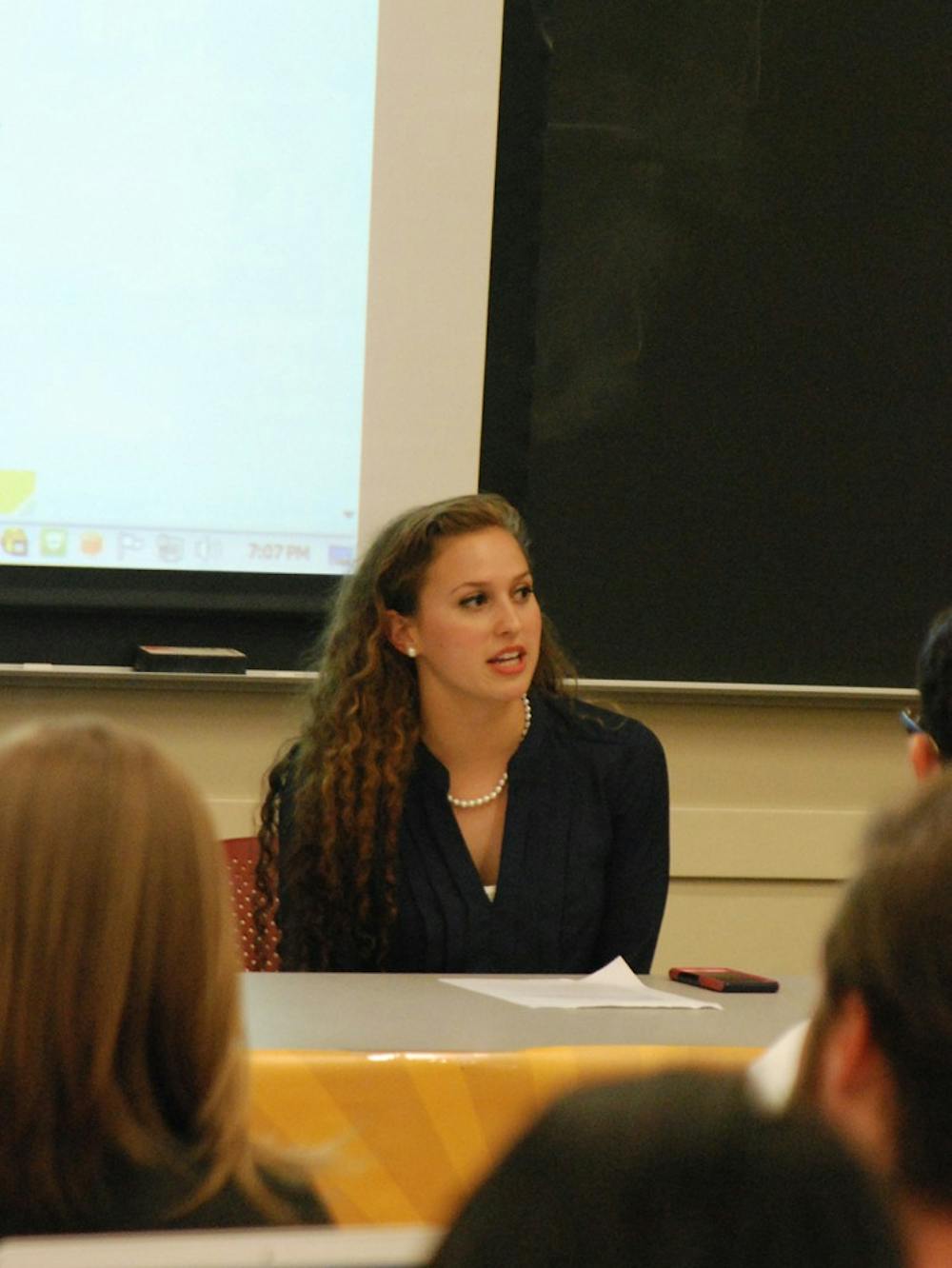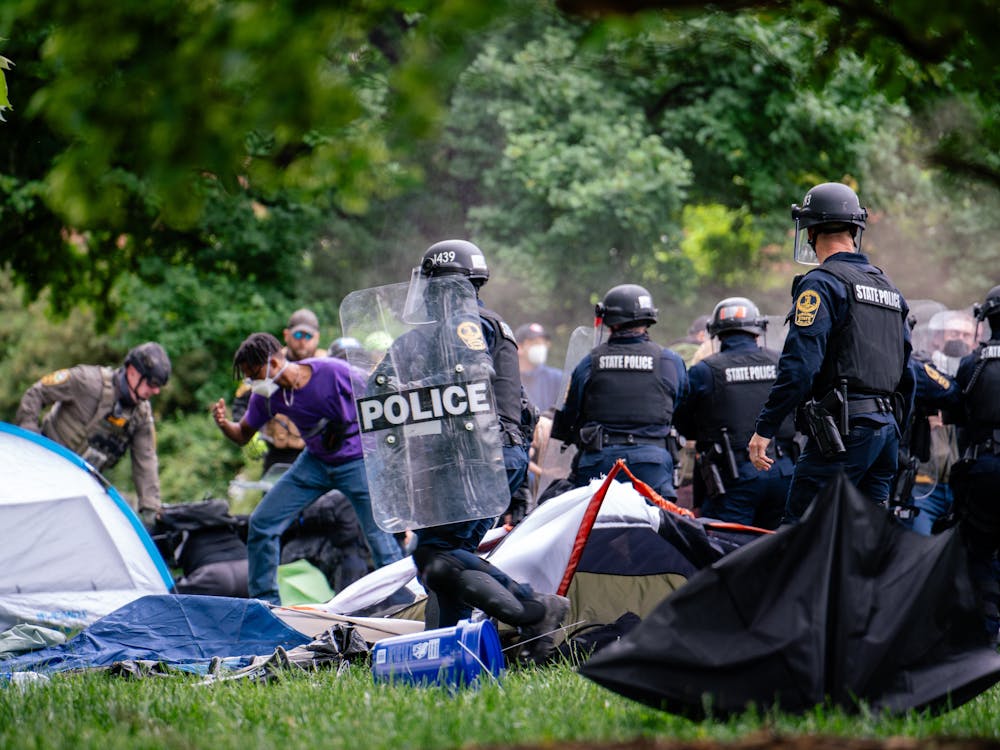The Students for Individual Liberty held a panel discussion Wednesday entitled “Incarceration Nation,” which touched on a host of emerging and long-standing law enforcement issues.
The panel consisted of three experts on criminal legal policy, including University Law Prof. Sherri Moore and Luke Kenworthy from the non-profit Generation Opportunity.
One of the most discussed issues was the policy of mandatory minimums, which all panelists said was bloating the prison system and leading to unjustly higher levels of minority incarceration.
Kenworthy said the U.S. has only 5 percent of the world’s population, yet we account for 25 percent of the world’s incarcerated population. He said a large part of the statistic is a result of the policy of federal mandatory minimums, which became law in the mid-1980s.
The idea behind mandatory minimum legislation began when judges across the country sought to create a uniform set of sentencing guidelines they could refer to when handing down sentences. The initial intention of creating guidelines morphed into mandatory sentences when the minimums were formally adopted by Congress amid the Reagan era’s War on Drugs.
Moore said the legislation had the undesired effect of taking sentencing decisions out of the discretion of judges and inflated the leverage prosecutors have when seeking a more favorable plea deal for the state.
“The problem is [mandatory minimums put] power in the prosecutor’s hands,” Moore said. “It helps them get more guilty pleas and many people take [that] plea bargain because they can’t get a lawyer.”
Kenworthy said the minimums forced judges into arbitrary sentencing decisions, which often do not mirror the severity of the crime.
“Judges are forced to make a minimum sentence instead of assessing a more appropriate punishment for the crime,” Kenworthy said.
An often repeated point was that many of the law enforcement issues the panel talked about actually transcended the partisan divide.
Source: Bureau of Justice Statistics, 2013
Panelist Ben Jones, member of Conservatives Concerned about the Death Penalty, said the law enforcement issues the panel discussed transcended the partisan divide, as both the Democratic and Republican parties aim to limit government in its emphasis on curbing encroachment into the personal liberties of citizens in various contexts. He said, fiscally, prison overpopulation and execution of prisoners actually ran contrary to the basic tenets of conservatism.
“When you look at the death penalty, you can see it is not aligned with limited government,” Jones said. “From a fiscal perspective it’s very costly — this is the case in [Virginia] and across the country — people on death row have extra procedural hurdles that have to be overcome like the long process of trials and appeals that costs taxpayers.”
Jones also said the government is overstepping its power over the individual.
“The Death Penalty says that the government can take that additional step and take a life and we don’t gain much with that,” Jones said.
Students for Individual Liberty is a group on Grounds focused around the ideals of liberty, especially in terms of personal and economic freedoms.
Second-year College student Grace Charlton, co-chair of the organization, helped organize the event and said she was happy the panelists touched on the many shortcomings plaguing the criminal justice system. She said she agrees with the panelists regarding how the U.S. should carry out its drug law enforcement program.
“I absolutely agree with them on all the many problems that were brought up,” Charlton said. “Ending the war on drugs is important — we incarcerate so many people for non-violent crimes and yet studies show that many of these people will be repeat offenders. Keeping people out of the cycle of incarcerations is crucial.”





